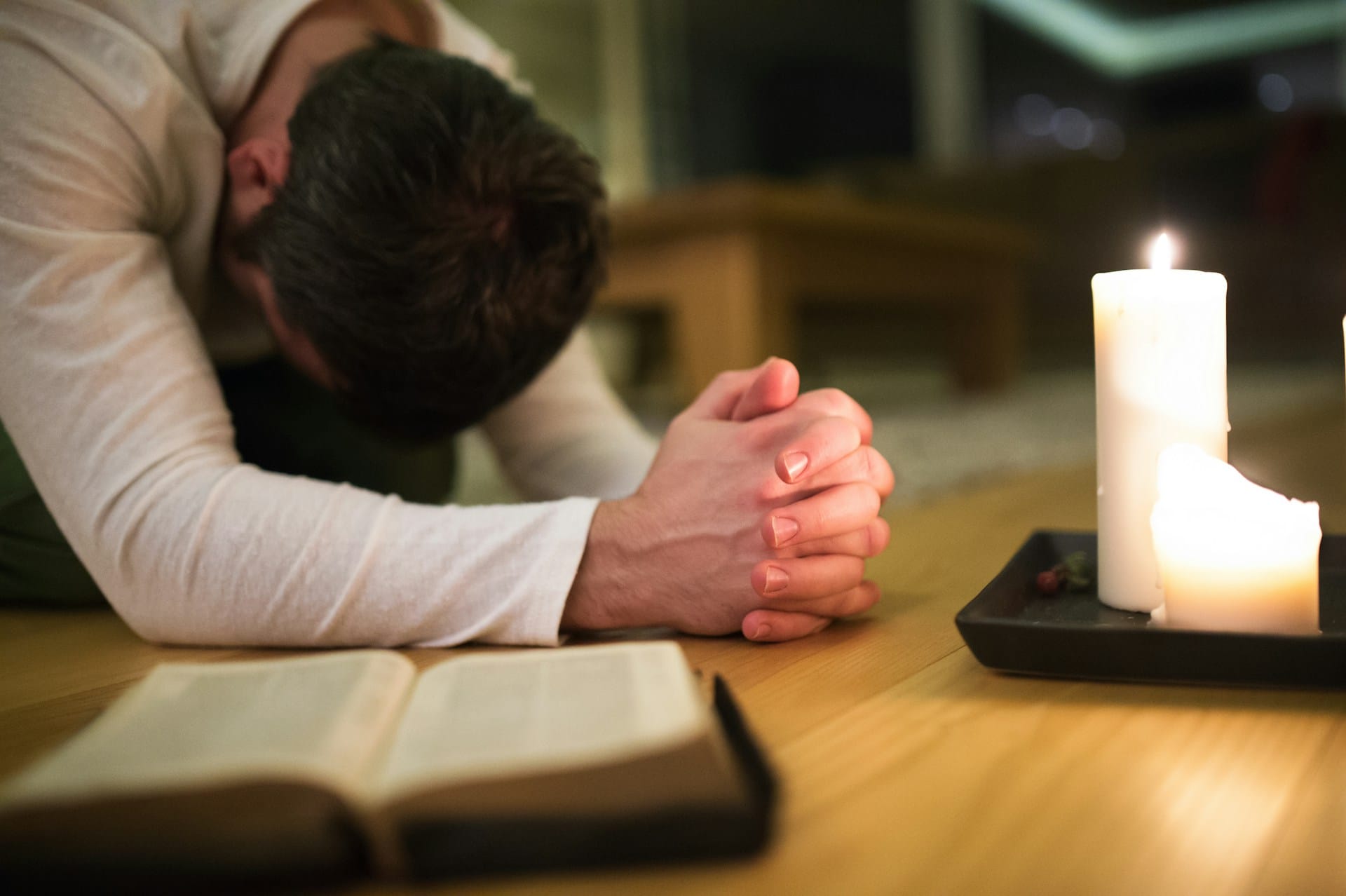The philosopher Socrates is credited with having said that, “The unexamined life is not worth living.” By this, he meant that people have the capacity to think about the meaning and purpose of their lives, and doing this enables us to experience our lives and our humanity fully. We can use our minds to examine our lives, ask important questions, and try to discover the meaning of our existence in ways that other creatures in God’s creation cannot.
There is a lot to be gained from taking the time and creating the space to reflect on your own life. Sometimes, we can become so caught up in doing activities that we fail to pause and ask ourselves what we are doing and why. Getting to the heart of these questions can be a huge help in our lives because it’ll support good mental and emotional health. At Rowlett Christian Counseling, we provide a safe and supportive environment to help you slow down, reflect, and reconnect with what truly matters.
The Importance of Self-Reflection
Life can just happen to us, barreling down at us at a hundred miles an hour. Our lives are busy, filled with meetings, phone calls, text messages, chores, conversations, and so much more. It’s possible to move from one thing to the next without really pausing to breath or to ask yourself important questions like, “Why am I doing this?” This is the reason why taking time to self-reflect is so important.
If you don’t take the time to self-reflect, it can be easy to move through your life without thinking too much about it, and without ever pausing to see if what you’re doing is actually working well. When you take the time to self-reflect, it creates space for you to move beyond simply experiencing life to understanding your own life. You become more self-aware of who you are as well as the things you do.
Further, self-reflection helps you know yourself and remove any illusions about who you are. It helps to better understand the things you give yourself over to do. For instance, if you’re a parent who’s been at loggerheads with your child lately, you can take time to self-reflect and see how you’ve been acting and reacting towards them. You can consider if what you’ve been doing to understand them has been working or not.
Another situation is when you’ve just had a breakup. Relationships can be messy, and their endings can be complicated. It may be easy to blame things on your partner, but taking some time to self-reflect will help you to honestly consider what behavioral patterns may have contributed to the situation unfolding as it did. You take the time to learn these things about yourself so that you don’t make the same mistake in a future relationship.
Being self-reflective can help you see what’s working and what isn’t working in your life. It can help you to move toward seeking help if you need it, so that you don’t remain trapped in unhealthy patterns of behavior and thought.
How Self-Reflection Works
The practice of self-reflection isn’t fancy or complicated. You just need to set aside time to look back on your day honestly as you consider a few key questions. It may be helpful to look at self-reflection as a way to learn more about yourself, and not as a way criticize and shame yourself. As you self-reflect, all you’re doing is looking back on your day, making sure not to get mired in regret as you do so.
You’ll look back on your day, honestly asking yourself about what happened, how you acted, and the consequences of your actions. You can take the time to consider what worked, what didn’t go as planned, and start thinking about what you could do differently. Looking back on your day, especially if it’s been a “bad” one can be difficult. Self-reflection requires courage to face whatever happened with sincerity.
There are a few ways you can approach the task of self-reflection. A few key questions can help you. It’s possible to be too generic in the questions you ask yourself, and to walk away without having gained insight. Some ways to approach your self-reflection include asking yourself about the following things.
Consider what you may have failed at, and why
It’s never easy to look back on a day, particularly a hard day where we may have failed at something. However, we can learn from our mistakes, about what we shouldn’t do and why. Take a moment to consider what didn’t work today, and why that may be the case. Taking time for reflection allows you to internalize whatever lessons can be learned from your failures.
 For instance, you may have given an uninspiring presentation at work. You did the work, researched well, and put together some amazing information. But you found yourself fumbling at points and struggling to articulate yourself well. The learning point here may be that you need to practice your presentation with others before delivering it. That way you can work out any glitches beforehand.
For instance, you may have given an uninspiring presentation at work. You did the work, researched well, and put together some amazing information. But you found yourself fumbling at points and struggling to articulate yourself well. The learning point here may be that you need to practice your presentation with others before delivering it. That way you can work out any glitches beforehand.
Think about what surprised you
Think about what the feeling of surprise can tell you about a given situation. When something surprises or shocks you, that reaction can reveal some of your hidden expectations, mistakes you may have made that you didn’t expect to, lapses in judgment, or wrong assumptions that you may have carried into a situation. The things that surprise you in a day can make you reexamine and unearth your assumptions.
You may find yourself being surprised by an area of weakness that you thought you’d overcome. Sometimes, we can find old attitudes or an unspiritual mindset leading us in a moment. Or you can find yourself surprised at your feelings of entitlement to things going your way, even when Jesus promised no such thing to His followers (John 16:33; 2 Timothy 3:12).
Contemplate what frustrated you
Your frustration can reveal your goals and the things you are aiming for. Underpinning your goals, are the things you value. Not getting what you want inevitably results in feelings of frustration. When you’re frustrated, it’s a chance for you to explore other approaches, to grow in the virtue of patience, to become better at problem solving, and perhaps to also improve your communication ability.
Situations that frustrate you can test your ability to respond when you’re feeling angry. Anger can cloud your judgment, and it is often in those situations that you react in less than stellar ways. Perhaps you acted out of anger and spoke in a disrespectful way to a family member or a colleague. Take the time to think about your reaction, and how you might have reacted differently given another chance.
Some Practices to Help with Self Reflection
The angles for self-reflection suggested above can help you consider your day in concrete terms. Some of the practices that can help your self-reflection include the following:
- Maintain a journal There are journaling apps available, not to mention the tried-and-true physical journal that you can use to record your thoughts and experiences. Make sure to put down enough detail to remember the situation you were in and the feelings it elicited. You can use the opportunity to explore why you may have felt the way you did, and why you had the thoughts that raced across your mind.
- Make time to review what you’ve journaled Perhaps you can do this weekly to keep a short account, or after every two weeks. Reviewing it isn’t simply about rereading what you wrote. Think about how you see those situations now. What would you do differently today? Ask yourself if there was more going on with you or with the situation that you see now but likely missed then. Why did you miss it?
- Be gracious As you journal and review what you’ve written, show yourself grace. Pray for the Lord to reveal what may have been going on in your own heart. Meditate on Scripture and allow it to challenge you and expose your heart (Psalm 19). If you need to, ask the Lord for forgiveness and wisdom, and the strength to keep going. The point of journaling is not to beat yourself up. Rather, it is simply to learn, and grow.
Self-reflection is a healthy Christian practice that enables you to experience God’s grace as He changes you to become more like Jesus. Becoming more aware of yourself can help you recognize how God is changing you, where He’s working on you, and where He may be calling you to be more present.
The Value of Counseling
Talking to a counselor can also help you piece together your reflections and use them toward growth and maturity. If this resonates with you, reach out to our offices at Rowlett Christian Counseling today and we will connect you with one of the Christian counselors in our directory for an appointment.
References: Don’t Underestimate the Power of Self-Reflection (hbr.org)
“Ocean wave beside seashore”, Courtesy of Unsplash, Unsplash.com, CC0 License
- Kate Motaung: Curator
Kate Motaung is the Senior Writer, Editor, and Content Manager for a multi-state company. She is the author of several books including Letters to Grief, 101 Prayers for Comfort in Difficult Times, and A Place to Land: A Story of Longing and Belonging...
DISCLAIMER: THIS ARTICLE DOES NOT PROVIDE MEDICAL ADVICE
Articles are intended for informational purposes only and do not constitute medical advice; the content is not intended to be a substitute for professional medical advice, diagnosis, or treatment. All opinions expressed by authors and quoted sources are their own and do not necessarily reflect the opinions of the editors, publishers or editorial boards of Stone Oak Christian Counseling. This website does not recommend or endorse any specific tests, physicians, products, procedures, opinions, or other information that may be mentioned on the Site. Reliance on any information provided by this website is solely at your own risk.





